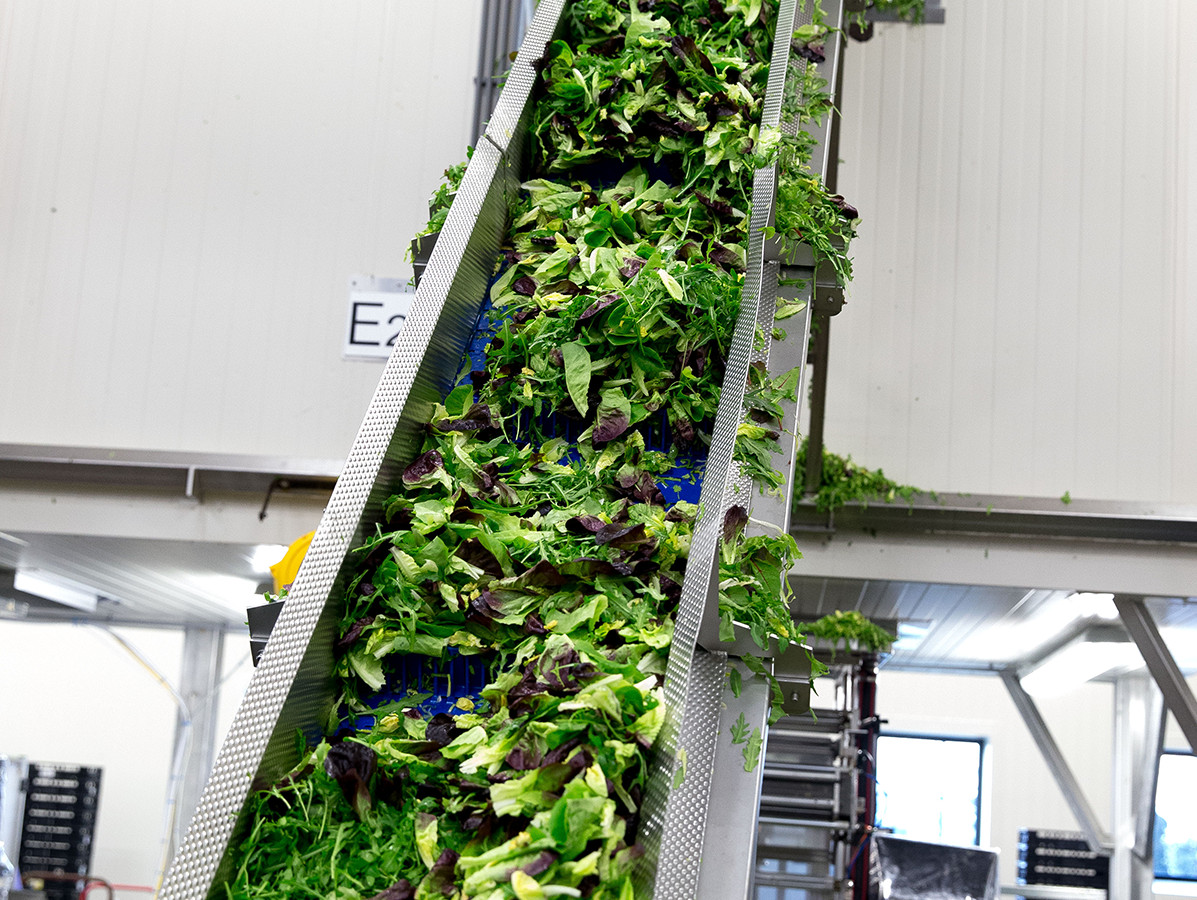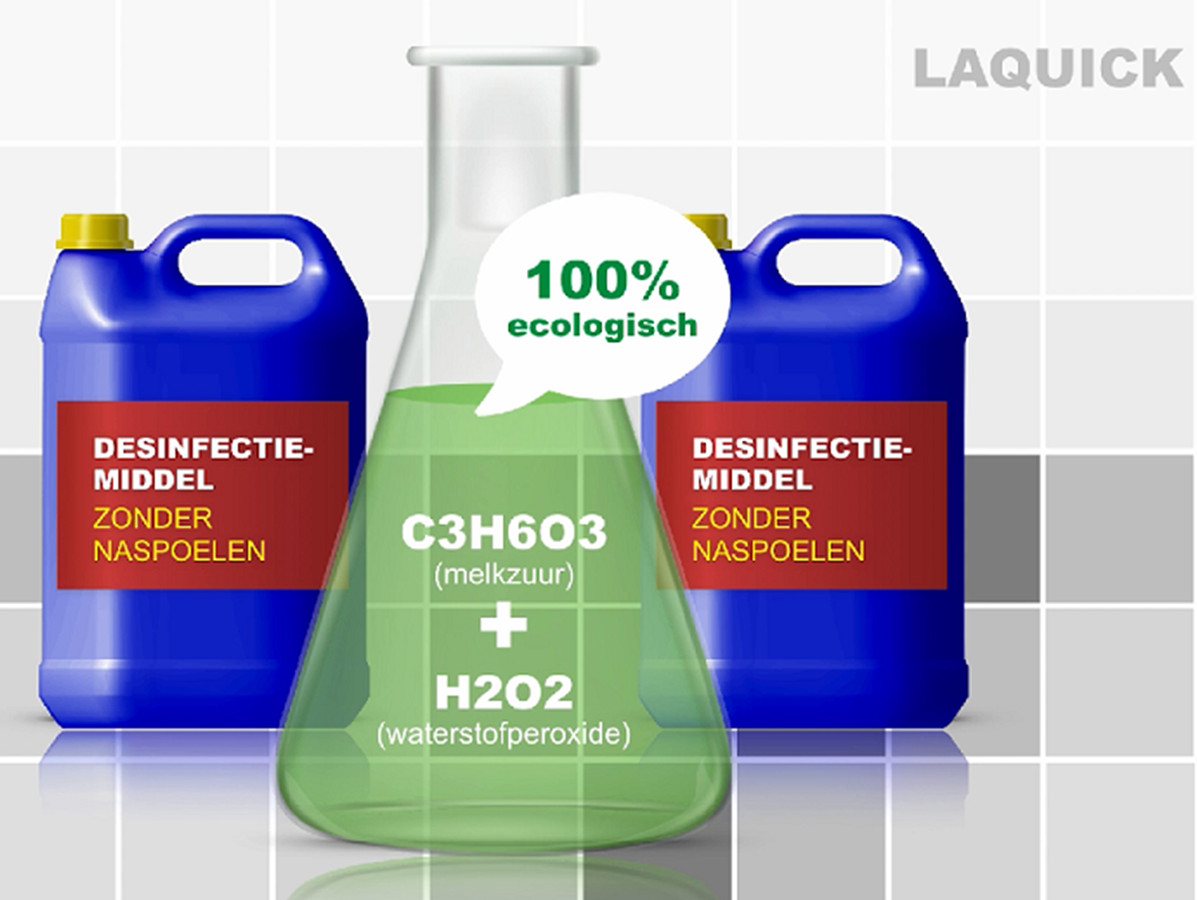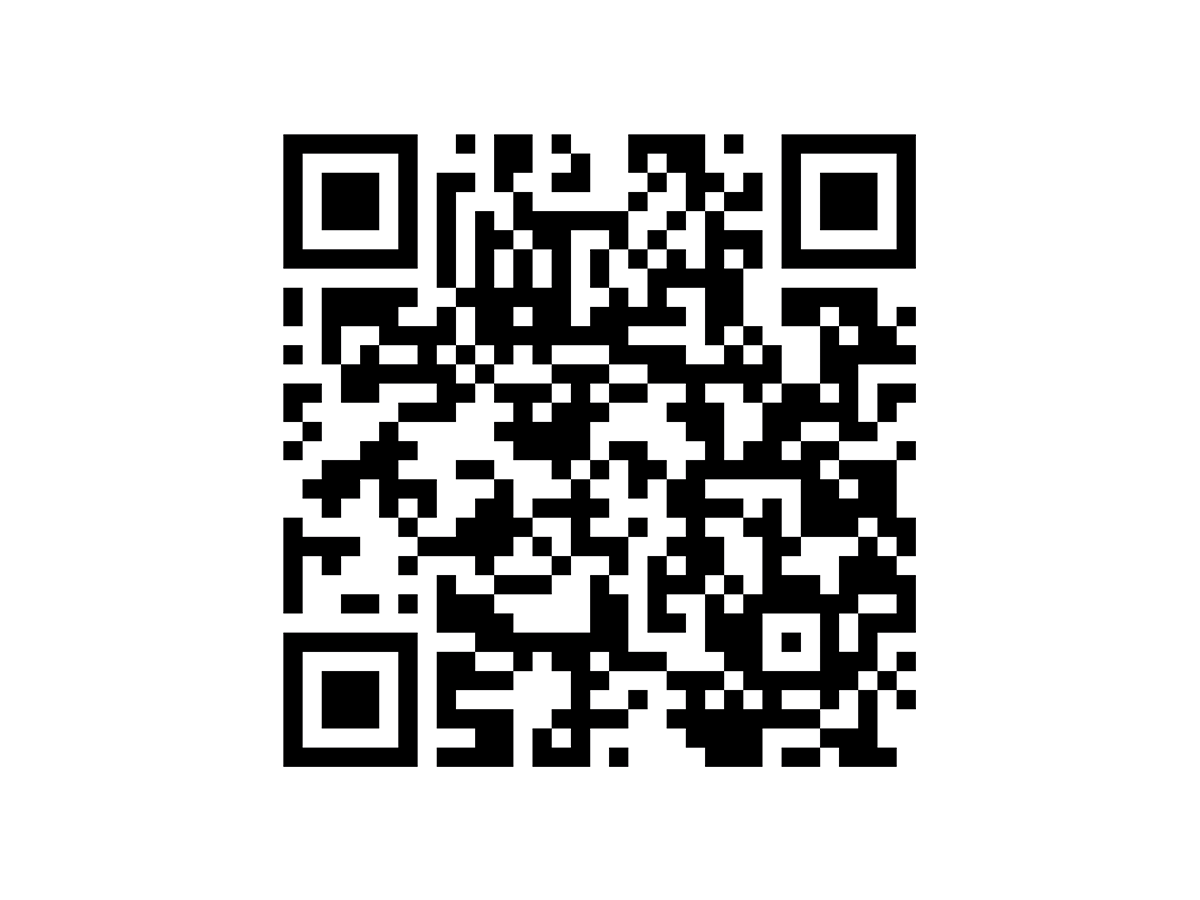
Now that the COVID-19 virus is circulating, there is a great demand for disinfectants. There is a shortage on the market, so all registers are being pulled open in the search for reliable products. It is important for you to know that you are purchasing a legally permitted disinfectant. Products with an approval number have been tested for safety for people and the environment.
Eco2Clean has had an innovative disinfectant based on lactic acid and hydrogen peroxide at its disposal since February 2020: Laquick. This ecological, 100% natural disinfectant can replace both ethanol and quatt-based disinfectants and is safe for people and the environment.
Disinfectants belong to the biocides. They are used to control organisms that are harmful to human and animal health, or to control organisms that cause damage to products. Biocides are chemical or biological in nature. All biocidal products require authorisation before they can be placed on the market. The active substances contained in the biocidal product must have been approved in advance. Approval of the active substances in the disinfectants is at European level; subsequent authorisation of the biocidal products on the market at national level.
The Biocides Regulation (BPR, Regulation (EU) 528/2012) aims to harmonise the market of disinfectants at EU level while ensuring a high level of protection for humans and the environment. The EU implements this by simplifying the approval of active substances and the authorisation of biocidal products, introducing timetables for evaluation by Member States, preparing opinions and taking decisions. In addition, the regulation promotes the reduction of animal testing by requiring the sharing of data and encouraging the use of alternative test methods.
For the Plant Protection Products and Biocides Act, disinfectants are only those products that have an authorisation number issued by the Board for the Authorisation of Plant Protection Products and Biocides (Ctgb). Disinfectants that have a broader application, such as sprays and wipes for the disinfection of tools and work surfaces, are also covered by this Act.

Alcoholic disinfectants consist mainly of ethanol and isopropyl alcohol. Ethanol is considered to be carcinogenic and reprotoxic. The Health Council of the Netherlands has established on the basis of scientific research that long-term exposure to ethanol in the workplace via inhalation and/or dermal exposure poses an additional health risk. There is no safe concentration at which additional risk is excluded (genotoxic mechanism). Ethanol-based disinfectants are still tolerated in the absence of an alternative. They have a legal approval, but use is only allowed on condition that the working conditions are adapted. In addition, each company is obliged to examine the possibility of replacing ethanol with a less harmful alternative. If no substitute substance is available, additional obligations apply, formulated in the working conditions decree for CMR substances.
Residues of quaternary ammonium compounds are regularly found, especially on fresh vegetables, but sometimes also on other foods. Also in this group of disinfectants more and more critical remarks are made. German supermarket chains have already imposed strong restrictions on their use in recent years. Quaternary ammonium compounds (quats for short) and amphoterics belong to the group of disinfectants that have a killing effect on microorganisms based on surfactants (soap-like substances).
The advantage of these disinfectants is that they are safe to use on a wide variety of surfaces (stainless steel, aluminium, plastic, but also painted surfaces) and are not very sensitive to contamination. The effect of most disinfectants decreases in the presence of (residual) contamination. If residues remain on or in a foodstuff, they can be detected for a long time, even at very low concentrations. Quats also remain active in wastewater and the environment for a long time. Under pressure from German retailers, Dutch companies are forced to use alternatives to disinfectants based on quats that are allowed in the Netherlands.
The Laquick Pro variant is in most cases a good alternative to quatt-containing disinfectants. As a replacement for ethanol-based disinfectants, there are the concentrated disinfectants Laquick (12,5%), Laquick R2U and Laquick wipes. The disinfectant has a very broad spectrum of action against bacteria, viruses, yeasts and moulds and an ultra-fast application time (1 to max. 2 minutes). It expires after a long action in water and carbon dioxide and has a permission not to rinse. This new product ensures that your employees can work safely, your products and waste water are free of quat residue and reduce your cleaning hours and water consumption.
Scan the code for the Laquick-animation
Photos: © Marcel van Engelenburg
Source: © Vakblad Voedingsindustrie 2020